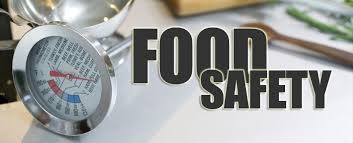CERTIFICATION & AUDITING
At QAT, our experts team have core knowledge to do audit and certify a wide range of internationally recognized management systems. Quality , Safety and Environment are critical matters that affect the performance of your organization, let QAT be your reliable partner providing your organization with Auditing and Certification services.

Our Certification & Auditing services overlap a number of ISO Standards and other management systems, out of which some of the most prominent ones are :
- ISO 9001 : Quality Management System (QMS)
- ISO 29001 : QMS for Oil & Gas Industry
- ISO 14001 : Environmental Management System (EMS)
- ISO 45001 : Occupational Health & Safety Management System (OH & S)
- ISO 50001 : Energy Management System
- ISO 22000 : Food Safety Management System
- Hazard Analysis and Critical Control Points (HACCP)
- ISO 27001 : Information Security Management System
- TS 16949 : Automotive Specific
ISO 9001 : Quality Management System (QMS)
ISO 9001 is the International Standard that specifies requirements for a quality management system (QMS). Organizations use the standard to demonstrate the ability to consistently provide products and services that meet customer and regulatory requirements. It is the most popular standard in the ISO 9000 series and the only standard in the series to which organizations can certify.

ISO 9001:2015 brings a number of benefits
- Focus on demonstration of leadership within the organization.
- Promotes Risk based thinking within the organization.
- Integration of QMS into business processes, as accountability of QMS, lies with top management.
- Due to focus on intended outcome i.e on desired output of process and associated risks and opportunities results in more reliable Product/Services for more effective and efficient service/product provision processes.
- Enhanced efficiency: With the ISO 9001 Certification, you can be assured of better performances within the company.
- Employees within organization would be working towards achiving the vision , mission, common goal of organization.
- Enhance the performance and productivity of each department and organization.
- High Morale among Employee.
- Builidng up of Excellent Brand Image.
Certification Procedure
- Application for certification from client
- Submission of offer by QAT
- Acceptance of Offer by client and Confirmation of agreement by both client organization and QAT.
- Conduct of Initial Certification audit – (Stage 1 + Stage 2) / Re-Certification audit.
- Issuance of the “Certificate of approval” on successful completion of the initial / Re-certification audit process.
- Validity of “Certificate of approval” is for three years from the date of decision, subject to conduct of annual Surveillance audits as agreed upon.
- Recertification audit process to be completed before the expiry of “Certificate of approval”.
ISO 29001 : QMS for Oil & Gas Industry

ISO/TS 29001 defines the Quality management system requirements for the design, development, production, installation and service of products for the petroleum, petrochemical and natural gas industries.
ISO 29001 specifically focuses on the oil and gas supply chain. The ISO/TS 29001 standard is based on ISO 9001 and incorporates supplementary requirements emphasizing defect prevention and the reduction of variation and waste from service providers.
Benefits of ISO 29001 certification
An oil and gas management system has plenty of benefits and lot more than what meets the eye. A few key points
- Garnering an international audience. With an ISO 29001 certification like this in place, you would be able to open your business portfolio across many channels. You would be able to reach out to international contracts that are on offer.
- Marketing your business becomes extremely easy. You would be able to reach out any trading option. It would make it easy for you to gather more licenses to increase the number of contracts and prospects to sell.
- Every company stakeholder needs to know that their company is being directed towards the right path. With such a quality standard in place, it is bound to impress the stakeholders by showcasing your commitment to industry best practices.
- You would be able to bring down expenses and increase efficiency in the system. This would effectively mean improving the quality of the output and reducing wastage.
- An assessment of the system would help you understand loopholes and threats in the company. You would be able to know what is going wrong in your business and how you have to fix it.
ISO 14001 – Environmental Management System (EMS)

The ISO 14000 family addresses various aspects of environmental management. It is becoming more and more important to demonstrate that organizations are thinking about their environmental impact and putting in place systems that will not only benefit the environment but will also reduce costs and improve efficiency within the organization.
ISO 14001 EMS helps to maintain the Environment around us, by following certain management standards. Companies adopting ISO 14001 EMS are well placed against their competitors and are duly recognized at the global level.
Benefits of Environmental Management System
- Demonstrate compliance with current and future statutory and regulatory requirements
- Increase leadership involvement and engagement of employees
- Improve company reputation and the confidence of stakeholders through strategic communication
- Achieve strategic business aims by incorporating environmental issues into business management
- Provide a competitive and financial advantage through improved efficiencies and reduced costs
- Encourage better environmental performance of suppliers by integrating them into the organization’s business systems.
- A stronger commitment to proactive initiatives that boost environmental performance.
- Achieve strategic business aims by incorporating environmental issues into business management.
- A focus on life-cycle thinking, to consider the environment from development to end-of-life
ISO 45001 – Occupational Health & Safety Management System (OH&S)
ISO 45001 Certification provides a robust and effective set of processes for improving work safety in global supply chains. Designed to help organizations of all sizes and industries, the new International Standard is expected to reduce workplace injuries and illnesses around the world.
ISO 45001 is designed to integrate with other ISO management systems standards, ensuring a high level of compatibility with the new versions of ISO 9001 (quality management) and ISO 14001 (environmental management), businesses that already implement an ISO standard will have a leg up if they decide to work toward ISO 45001.

Benefits :
- will help them manage their OH&S risks and improve their OH&S performance by developing and implementing effective policies and objectives. Key potential benefits from use of the standard include:
- Reduction of workplace incidents
- Reduced absenteeism and staff turnover, leading to increased productivity
- Reduced cost of insurance premiums
- Creation of a health and safety culture, whereby employees are encouraged to take an active role in their own OH&S
- Reinforced leadership commitment to proactively improve OH&S performance. Ability to meet legal and regulatory requirements
- Enhanced reputation
- Improved staff morale
ISO 50001- Energy Management System (EnMS)
Smarter energy consumption is the norm of our times. Mass awareness towards the need of saving energy has been gaining momentum and most companies, whether global or local, have been focused on this. Several benefits flow to the businesses that are particular about practising optimal energy utilization besides the fact that they are contributing to protect the environment.
An ISO 50001 certification for your business, would mean better savings and also exhibit better commitment towards the environment. Better savings would come from implementation of energy management system, reducing wastage within your organization. It will also ensure that genuine efforts are duly taken to protect the environment.
The efficient team of auditors at QAT provide end to end assistance ensuring a seamless and easy transition through the certification process. An in-dept audit of existing systems within the organization will cast the blueprint for earning the certification. In the event that the audit reveals that all requirements of ISO 50001 are in place, the team will assess the implementations and proceed with the energy management system quality certification.
Certification as per EnMS would mean that your business is managing energy efficiently. It would mean that your greenhouse gas emissions are considerably reduced and that EnMS is helping reach towards meeting environmental targets. Such a certification would prove that your business is a responsible one and keeps energy management as its most important target.
What is ISO 50001 Certification?
ISO 50001 is based on the management system model of continual improvement making it easier for organizations to integrate energy management into their overall efforts to improve quality and environmental management.
Benefits of ISO 50001 Certification
- A significant improvement of the energy performance level from an initial energy baseline.
- Supports the development of an energy policy and contributes to the structure of an energy plan to achieve set targets.
- Uses data to better understand and make decisions concerning energy use and consumption
- Reviews the effectiveness of the energy policy
- Continually improves energy management
- Facilitates engagement (commitment and agreement) of management and has a positive contribution towards the energy targets.
- Creates awareness and a commitment about energy (i.e. consumption, use, efficiency, renewable sources) within the organization.
- Improves the ability of organizations to manage energy risks concerning possible impacts in an efficient and effective way.
- Strengthens the competitiveness of organizations and reduces their vulnerability with respect to energy price fluctuation and availability of energy.
- Allows organizations to gain credible external visibility of energy saving actions.
- Provides a better understanding between predictable energy demand and supply.
- Reduces energy costs and improves profitability.
ISO 22000 – Food Safety Management System
ISO 22000 is a truly international standard suitable for any business in the entire food chain, including inter-related organizations such as producers of equipment, packaging material, cleaning agents, additives and ingredients.
- Interactive communication
- System management
- Control of food safety hazards through pre-requisite programs and HACCP plans
- Continual improvement and updating of the food safety management system

Requirements for any organization in the food chain:
- It defines what an organization must do to demonstrate its ability to control hazards related to food safety and ensure that food is safe for consumption.
For Whom is ISO 22000 for?
- ISO 22000 is applicable to all organizations in the food and feed industries, regardless of size or sector.
- All ISO standards are reviewed and updated regularly to make sure they remain relevant to the current market. ISO 22000:2018 encompasses the latest trends and food safety requirements, and is a timely response to the rising global challenges facing the food industry. It will also help address the growing need to ensure we can trust current food security systems and that they are sustainable.
- ISO 22000:2018 provides a understanding of the concept of risk, distinguishing between risk at the operational level and the strategic level of a management system.
What are the benefits for the business?
- ISO 22000 enables organizations to put in place a food safety management system that helps them improve their overall performance when it comes to food safety.
Key potential benefits of using the standard include:
- The ability to consistently provide food-related products and services that are safe and meet regulatory requirements
- Improved management of risks in food safety
Certification Procedure
The Certification Procedure is a multiple-step process. The certification cycle is described briefly:
- Application for certification from client
- Offer from QAT India
- Offer acceptance from client and order confirmation by QAT
- Pre audit (optional)
- Certification audit – (Stage 1 + Stage 2)
- Issue of certificate on successful completion of certification audit
- Surveillance audits at defined period
- Recertification audit after 3 years
Hazard Analysis and Critical Control Points (HACCP)
The objective of HACCP is to define the requirements for hazard analysis and critical control points (HACCP) based system that any food business needs to implement for the production of safe and suitable food. HACCP – Standard is based on the Recommended International Code of Practice: General Principles of Food Hygiene (CAC/RCP 1 – 1969 as amended)

ISO 27001 – Information Security Management System
ISO 27001 Information security systems help all enterprises and manufacturers to manage their information security management and later to the customer needs in the aptest and efficient manner. It has gives the business edge orders others in the competitive business world.

It is based on ISO 9001. In particular, the requirements for customer satisfaction and continual improvement have been modified to make them more appropriate for regulatory purposes. The selection of foolproof security controls to protect Information Assets and to gain confidence among customers is the need of the hour for many commercial establishments, government agencies, nonprofit organizations etc.
Advantages:
• Increase in business as customers / suppliers recognize a credible trusted partner
• Independently demonstrates that applicable laws and regulations are observed
• Business differentiator providing competitive advantage over similar organizations
• Compliance with Legislation
• Improved Management Control
Benefits
- ISO/IEC 27001:2013 is the only auditable International standard that defines the requirements of information security
- ISO/IEC 27001:2013 Certification helps businesses expand in global markets. It demonstrates credibility when tendering for contracts.
- Protect and enhance organization’s reputation by avoiding costly penalties and financial losses due to data / information breach
- ISMS improves company culture on understanding the infosec risks and integrating the security controls into the organizational processes and thus, lowering the overall risk to the organization.
Certification Procedure
- Application for certification from client
- Submission of offer by QAT
- Acceptance of offer by client and confirmation of agreement by both client organization and QAT.
- Conduct of Initial Certification audit – (Stage 1 + Stage 2) / Re-Certification audit.
- Issuance of the “Certificate of approval” on successful completion of the initial / Re-certification audit process.
- Validity of “Certificate of approval” is for three years from the date of decision, subject to conduct of annual surveillance audits.
- Recertification audit process to be completed before the expiry of “Certificate of approval”.
TS 16949 (AUTOMOTIVE SPECIFIC)

Automotive homologation is the process of certifying vehicles or a particular component in a vehicle that it has satisfied the requirements set by various statutory regulatory bodies. It is mandatory to get this approval to export automobile products or components.
Homologation standards are applicable to all kinds of automobiles especially in the areas of environment and safety. Prior to sales of motor vehicles, automotive systems and their components should necessarily have approvals according to the official standards of their destination countries.

